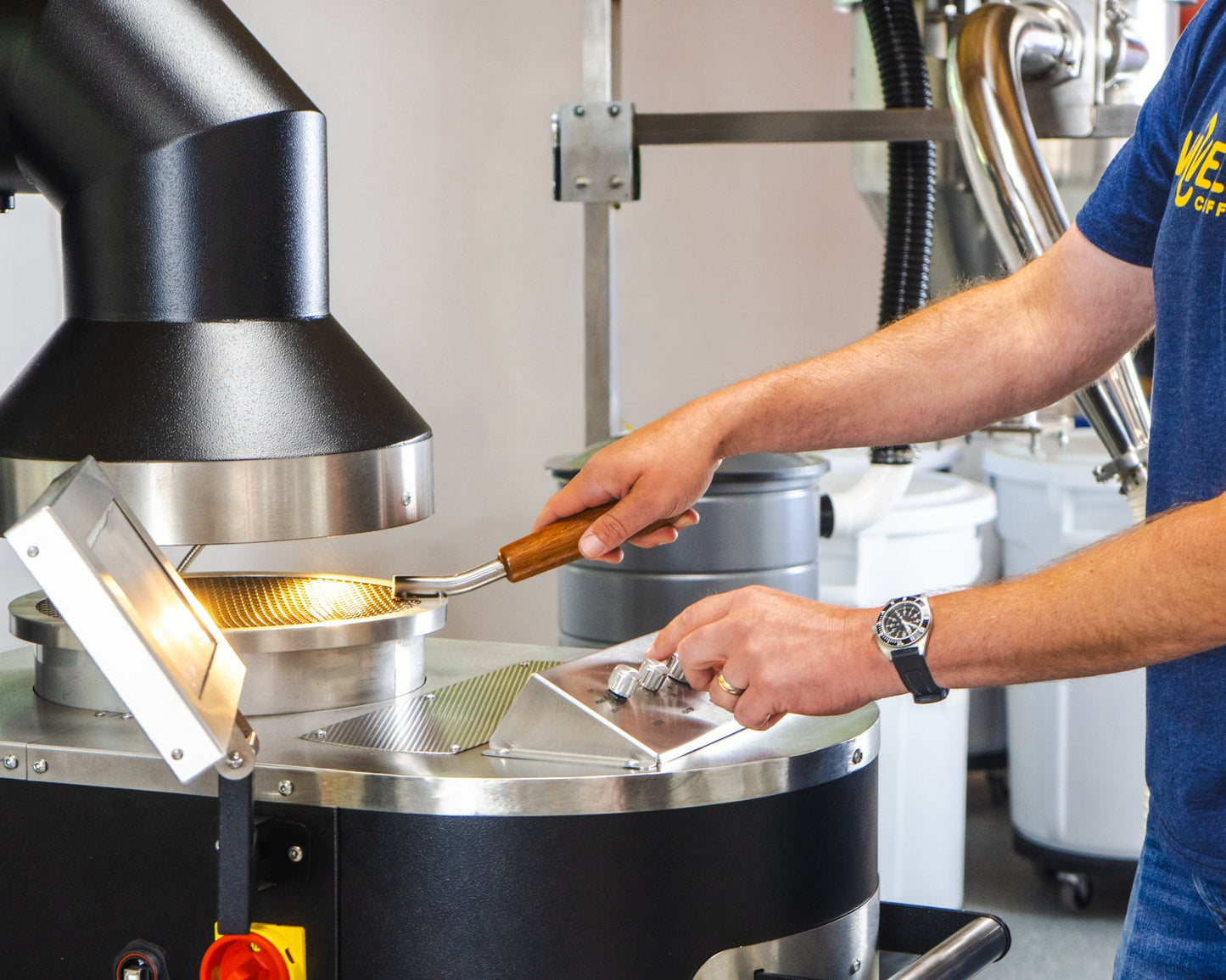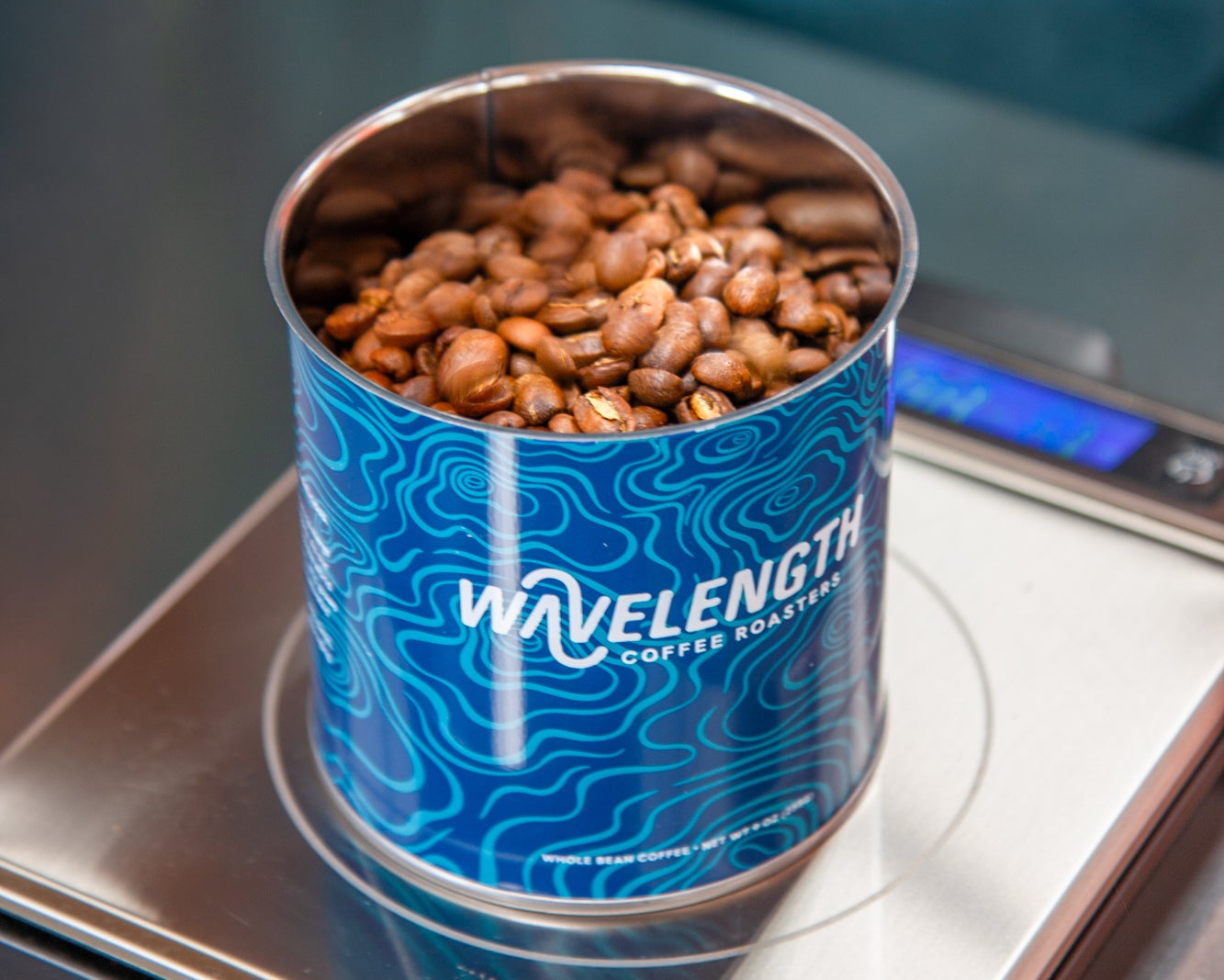Tanzania / Peaberry
Peaberries are a naturally-occurring mutation in about 5% of coffee cherries that produces a single, small, round seed (instead of two half-round seeds). Rather than a defect, these peaberries are prized for their density and sweetness. A solid medium roast captures the fruity, blackberry notes and tempers the prominent acidity with balanced sweetness.
This coffee comes from the southern highlands of Tanzania, where most coffee is now grown in the country. As is typical across the world, farmers here have small plots measuring .5 to 2 hectares (1.25 - 5 acres) on average, with just a few hundred trees. Farmers here hand-pick, sort, pulp, and process their own coffees before transferring them to regional mills.
Our sourcing partner for this coffee is deeply involved in the region (Tanzania, Rwanda and Burundi), and is committed to helping farmers there improve their livelihoods while adapting to a changing climate. For this lot they verify that participating farmers have met standards to improve carbon emissions, human rights, regenerative agriculture, living income and deforestation. Additionally, a portion of proceeds goes into funding a local coffee tree rejuvenation project, which helps farmers replace old, lower-yielding trees with new plantings that produce more cherries and thus income for their families. We are proud to support these efforts, and we thank you for supporting them too!
ORIGIN: Tanzania
PRODUCER: Various
FARM: Various
VARIETY: Blue Mountain, Bourbon, SL28, Typica
PROCESS: Washed
REGION: Mbozi, Mbeya, & Mbinga
ALTITUDE: 1600-1900 masl
Peaberries are a naturally-occurring mutation in about 5% of coffee cherries that produces a single, small, round seed (instead of two half-round seeds). Rather than a defect, these peaberries are prized for their density and sweetness. A solid medium roast captures the fruity, blackberry notes and tempers the prominent acidity with balanced sweetness.
This coffee comes from the southern highlands of Tanzania, where most coffee is now grown in the country. As is typical across the world, farmers here have small plots measuring .5 to 2 hectares (1.25 - 5 acres) on average, with just a few hundred trees. Farmers here hand-pick, sort, pulp, and process their own coffees before transferring them to regional mills.
Our sourcing partner for this coffee is deeply involved in the region (Tanzania, Rwanda and Burundi), and is committed to helping farmers there improve their livelihoods while adapting to a changing climate. For this lot they verify that participating farmers have met standards to improve carbon emissions, human rights, regenerative agriculture, living income and deforestation. Additionally, a portion of proceeds goes into funding a local coffee tree rejuvenation project, which helps farmers replace old, lower-yielding trees with new plantings that produce more cherries and thus income for their families. We are proud to support these efforts, and we thank you for supporting them too!
ORIGIN: Tanzania
PRODUCER: Various
FARM: Various
VARIETY: Blue Mountain, Bourbon, SL28, Typica
PROCESS: Washed
REGION: Mbozi, Mbeya, & Mbinga
ALTITUDE: 1600-1900 masl
Adaptive Agriculture
We source these coffees from producers who embrace, and sometimes invent, farm-level best practices for climate adaptation and mitigation. The range of solutions are as varied as the landscapes they originate from; emission reduction, agroforestry, intercropping, water conservation, regenerative agriculture, waste recapture, mycorrhizae, and many others.
Adopting new practices can be expensive and risky, especially for smallholder farmers. Every pound of their beans we roast helps to ensure the long-term survival of their farm, family, and way of life.
Community Initiatives
In many of the places it is grown, coffee is the core of the local economy; with some help, income from its cultivation can support not just a single farm but an entire community.
Our "Community Initiatives" coffees represent various programs designed to improve living standards at a hyper-local level. In each case, programs are created with input from the people who live there, applying a portion of the proceeds for the benefit of all. Some examples include construction of water filtration systems, financing micro-loans, purchasing livestock, and funding K-12 schools. These programs help to promote stability, self-sufficiency and resiliency in a rapidly changing world.

Air Roasted to Perfection
We use 100% electric, clean air roasting for our coffees.
Air roasting works by suspending the beans in a column of hot air, allowing them to roast more evenly and consistently without picking up unwanted flavors or defects that can happen with drum roasters. Our roasters are designed to produce safe, low-temperature, clean exhaust without filters, catalyzers or afterburners.
Altogether, this means that we can roast clean-tasting coffees more consistently using less energy and with lower emissions than conventional methods.

Circular Packaging
Our coffee cans are manufactured in the USA from 100% domestically sourced steel.
Why steel? Unlike plastic and paper, it's infinitely recyclable and is recovered at a higher rate (72%) than any other food packaging material. It's also the ideal barrier for keeping oxygen, moisture and light away from the beans inside. This, plus an integrated valve, means our coffee stays fresher longer.






